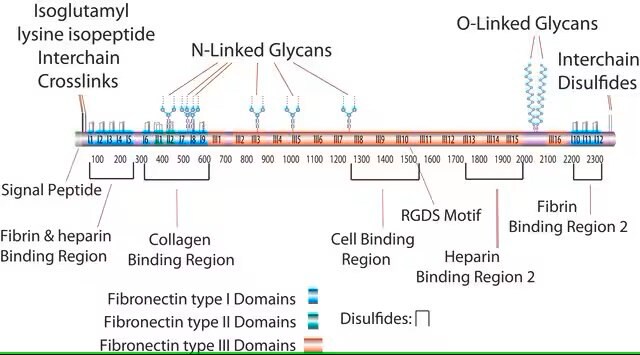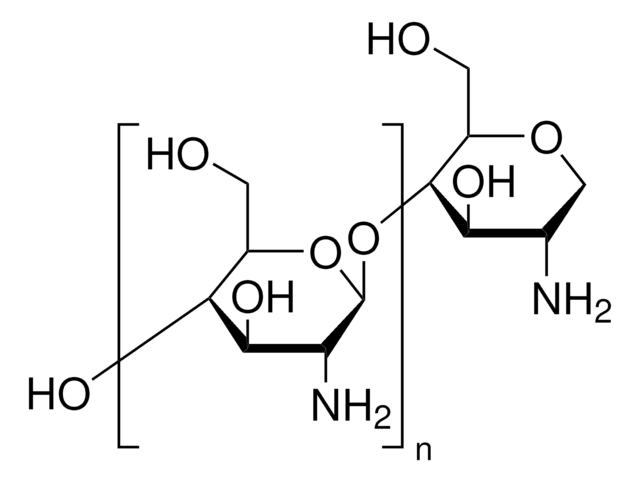FIBRP-RO
Roche
Fibronectin (pure)
from human plasma, >95% (SDS-PAGE), lyophilized (clear, colorless solution after reconstitution)
Synonym(s):
Fibronectin
About This Item
Recommended Products
biological source
human plasma
Quality Level
sterility
non-sterile; 0.2 μm filtered
Assay
>95% (SDS-PAGE)
form
lyophilized (clear, colorless solution after reconstitution)
mol wt
440 kDa
packaging
pkg of 1 mg (11051407001)
pkg of 5 mg (11080938001)
manufacturer/tradename
Roche
technique(s)
cell culture | mammalian: suitable
UniProt accession no.
storage temp.
2-8°C
Gene Information
human ... FN1(2335)
Looking for similar products? Visit Product Comparison Guide
General description
Specificity
Biological activity: Tested for the promotion of adherence of 3T3 (NR6) cells (XTT cleavage).
Application
Sequence
Physical form
Preparation Note
Storage conditions (working solution): -15 to -25 °C
The reconstituted solution is stable at -15 to -25 °C.
Note: Store the reconstituted solution in aliquots at -15 to -25 °C.
Avoid repeated freezing and thawing.
Reconstitution
Upon reconstitution, the solution may contain a small amount of insoluble aggregated material. These aggregates are a phenomenon inherent to fibronectin and do not influence product performance.
Other Notes
Disclaimer
Storage Class Code
11 - Combustible Solids
WGK
WGK 1
Flash Point(F)
does not flash
Flash Point(C)
does not flash
Choose from one of the most recent versions:
Already Own This Product?
Find documentation for the products that you have recently purchased in the Document Library.
Customers Also Viewed
Articles
3D cell culture overview. Learn about 2D vs 3D cell culture, advantages of 3D cell culture, and techniques available to develop 3D cell models
Protocols
Dilute fibronectin to the desired concentration. Optimum conditions for attachment are dependent on cell type and application. The typical coating concentration is 1 – 5 ug/cm2.Fibronectin coating protocol, products, and FAQs.
Our team of scientists has experience in all areas of research including Life Science, Material Science, Chemical Synthesis, Chromatography, Analytical and many others.
Contact Technical Service








